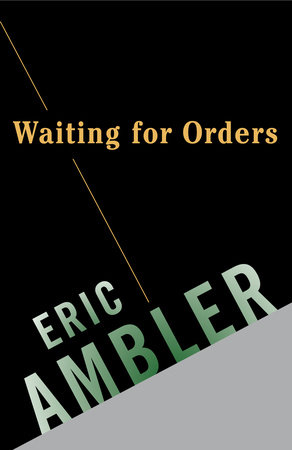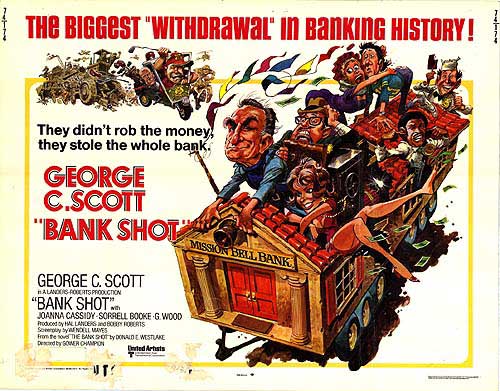One of the pleasures of mystery fiction is finding those series characters you love--the ones you can't get enough of, the ones whose adventures you snap up on sight. We all have our own list of favorites. Mine includes Robert B. Parker's Spenser, John D. MacDonald's Travis McGee, Lawrence Block's Matt Scudder, Sue Grafton's Kinsey Milhone, Rex Stout's Nero Wolfe and Archie Goodwin, Stuart Kaminsky's Toby Peters, Max Allan Collins's Nate Heller, Andrew Vachss's Burke, Kinky Friedman's, um, Kinky Friedman, Gregory Mcdonald's Francis Xavier Flynn, Warren Murphy's Digger/Trace, and Patricia Highsmith's Tom Ripley.
 |
| Anybody besides me remember this? |
If I had to pick a single favorite character from all crime fiction, though, I wouldn't hesitate. My favorite is Parker.
If you're reading this you probably know Parker, and if you don't, you should. Created by the great Donald Westlake (writing under his pen name, Richard Stark), Parker is a single-minded, ruthlessly efficient thief. He'll kill if absolutely necessary--or occasionally out of revenge--but for the most part Parker is interested in only one thing: getting away with the money. Most of his adventures see him recruited by or putting together a team to pull an ambitious heist. It inevitably goes wrong in some way, and much of the pleasure of the books is in watching Parker deal with that. Often this involves finding himself at odds with The Outfit, which is what the mob calls itself in Parker's world. There are 24 Parker novels, from 1962's The Hunter to 2008's Dirty Money. All are richly deserving of your time.
Now, a nail-biting moment of suspense for a mystery fan is finding out that one of your favorite characters is getting a movie. Will the makers of the film get them the way you do?
Parker has been put on film a number of times (though usually under a different name), played by actors ranging from Lee Marvin to Jim Brown to Mel Gibson. Earlier this month, the latest Parker film dropped on Amazon Prime: Play Dirty, starring Mark Wahlberg as Parker. If you're mostly familiar with Wahlberg from his meathead roles in various comedies and action franchises, this might seem like an odd choice, but Wahlberg is also capable of doing serious work and being appropriately intimidating--witness his performance in Martin Scorsese's The Departed. The new Parker movie was co-written and directed by Shane Black, who's made some solid films in the crime genre--Lethal Weapon and Kiss Kiss Bang Bang, for example. When I watched the trailer, I was impressed that one of the other characters was Alan Grofield, a character from the books who steals to fund his acting career (and who was popular enough to star in four spin-off Stark novels himself). I figured that the presence of Grofield meant that real fans were behind the movie, so I approached it with high hopes.
Those hopes came crashing to the ground fast.
I'll acknowledge the positives first. Wahlberg is, I think, perfectly acceptable as Parker, capturing the character's intensity well. He's almost always the smartest guy in the room, but if brute force is called for he won't hesitate to use it, and he'll usually win. LaKeith Stanfield is even better as Grofield, the more affable, but no less competent, sidekick. Tony Shalhoub does good work as the head of the Outfit. Several other characters from the books are part of Parker's crew--the married thieves Ed and Brenda Mackey, the driver Stan Devers--indicating, again, that somebody who knows the books well was involved at some point.
The basic setup is also solid. Play Dirty isn't based on a specific Parker novel, but the elements of the plot are familiar (I won't reveal anything here that isn't in the trailer). At the start of the film, Parker is part of a racetrack robbery. One of the crooks, a woman named Zen, betrays the crew and runs off with the take. Parker sets out for revenge. Learning that Zen took the cash as seed money for another, much larger job, he deals himself in. Complicating this is the fact that three years ago Parker made a deal with the Outfit requiring him to stay out of New York City--and guess where Zen's heist is happening?
So far, so good. So where does it all go wrong? Well, on a technical level, the special effects in the action scenes are horrendous, completely taking me out of the world of the film. The opening racetrack heist ends up with a cars v. horses chase on the track, with such bad CGI that the horses look like something out of Grand Theft Auto. The cheap CGI gets even worse in later scenes, culminating in a subway crash that is utterly unconvincing.
I can forgive bad effects. I can't forgive the fact that Parker acts less and less like Parker as the film goes on. One of the hallmarks of the character is his determination to avoid unnecessary heat and exposure, but this Parker, by the halfway point of the film, is plotting an absurdly overblown heist that would have every federal agent in the country descending on New York and result in hundreds, if not thousands, of civilian casualties. If that wasn't bad enough, he casually kills a celebrity (in what's meant to be a humorous cameo) for no good reason in the middle of a restaurant full of witnesses and cameras. The real Parker would shoot a member of his crew who did something so dumb.
The movie's also full of logical leaps and absurdities totally at odds with the basically realistic content of Westlake's stories. One of the targets of the New York heist, for example, is a figurehead recovered from a sunken treasure ship. The thing is massive, and surely weighs tons, but it's moved easily from place to place by Parker's crew and others--at one point being transported in what seems to be an ordinary NYC subway car. Watching how they managed to get it in there would have been more entertaining than the actual film.
The second half of the movie, with the crew bantering playfully and dealing with ridiculously contrived obstacles popping up at the most inconvenient times, doesn't play like a Parker plot. It plays like a Dortmunder plot, so much so that it feels like this must have been a deliberate choice. If you know Parker, you probably also know Dortmunder, Westlake's other hugely popular thief character. The Dortmunder books (which Westlake published under his own name) are comedies--for my money, the best comic caper novels ever written. There's a reason Westlake never wrote a Parker/Dortmunder crossover (not counting the book where Dortmunder's crew draws inspiration from a Parker novel). The ice-cold Parker simply doesn't fit in Dortmunder's farcical world. Trying to shoehorn him into it makes both him and the plot look silly.
The end result is a film that's just over two hours long, and feels twice that. It's a shame. My understanding is that this was meant to be the start of a new series, with Grofield even getting his own spin-off movies. That would have been fun--if only Play Dirty was worth watching. About the best I can say of the movie is that it's marginally more watchable than 2020's dreadful Spenser: Confidential, in which Wahlberg played Robert B. Parker's seminal Boston PI as a brutish ex-con vigilante. I have no idea why a significant part of Mark Wahlberg's career is suddenly ruining my favorite characters. I suppose in a few years he'll be playing Nero Wolfe, probably as a streetwise boxer or something.
What Parker should you watch instead of Play Dirty? The conventional choice for best Parker adaptation is John Boorman's 1967 Point Blank, starring Lee Marvin in an adaptation of the first novel in the series (which was also filmed in 1999 as Payback, with Mel Gibson in the lead). Point Blank is a good film, and Marvin is well-cast, but for my money it's a little self-consciously artsy, leaning into impressionistic and pseudo-psychedelic style at the cost of a straightforward story.
I prefer Taylor Hackford's 2013 Parker, based closely on the Stark novel Flashfire and starring Jason Statham as Parker. Statham is terrific in the part, believably capturing the character's intelligence, determination, and menace. There's a strong supporting cast, including Jennifer Lopez, Wendell Pierce, and Nick Nolte. The plot and action sequences are exciting without ever being ramped up into the unbelievable. I really regret that it apparently didn't do well enough for Statham to return to the part, but for fans of the character, it's very much worth seeking out.
(I'll also confess to a lingering fondness for a kind of alternate universe version of the character. In the TV series Leverage, about a crew of con artists and grifters who team up to use their skills on the side of justice, Beth Riesgraf plays a master thief named, you guessed it, Parker. I've never seen any confirmation of this, but that's surely a tribute to Stark's character, particularly since, to my knowledge, the character's first name is never revealed. Riesgraf has a lot of fun with the part, and I really enjoyed the first run of the series, but I've never watched the reboot, Leverage: Redemption, in which she continues the character. If you have, let me know if it's worth checking out.)
If you're looking for a truly great Parker adaptation, though, don't look to the screen--get thee to your local comics shop. In 2009, the writer and artist Darwyn Cooke, with Westlake's blessing and endorsement, released a graphic novel version of The Hunter that is a pure pleasure to read, or even just to look at. Cooke's monochromatic art is stunning, and his sense of pacing and design keeps the story humming along. He's obviously a huge fan of the novels, and his love for them is apparent in every line. It's a very faithful adaptation, set in the 1960s rather than being updated to modern times.
Cooke went on to adapt several more Parker books--The Outfit, The Score (my personal favorite among the novels), and Slayground--and had hopes of covering the entire series, but, tragically, his own death in 2016, at the age of just 53, prevented that from happening. His Parker adaptations are still in print. I particularly recommend the Martini Editions, gorgeous, oversized, slipcased hardcovers that feature a wealth of bonus features and let you really luxuriate in the art.
And of course it goes without saying that if you haven't read the Parker novels themselves, you need to close this window and go do so now. You'll thank me later.















